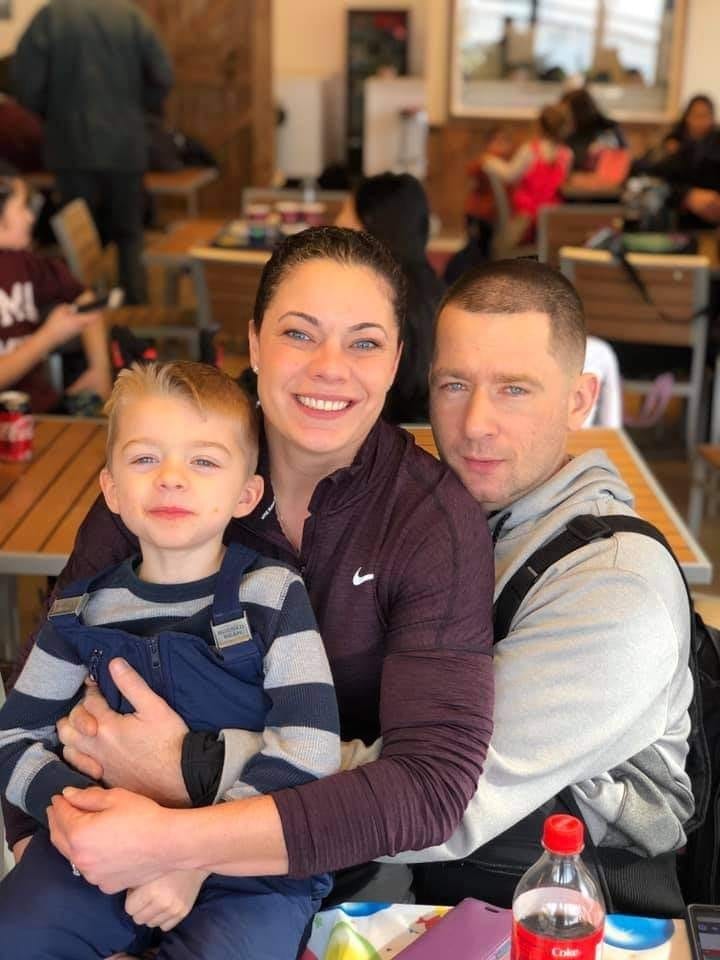Frank M.
Primary Sclerosing Cholangitis/Liver Cancer

Shortly after a deployment to Afghanistan with the Army, I went to a VA hospital for hernia surgery and became jaundice right after. I returned to the hospital, thinking it was a complication of the surgery, and turns out it wasn’t. I was later diagnosed with Primary sclerosing cholangitis (PSC), a rare liver disease. The doctor referred me to a specialist at Hartford Hospital. With the help of my new doctor, we were able to get it under control with medication, and for years all was well. In 2014, I was married and had my first son.
Fast forward to 2016, I started suddenly feeling unwell. I contacted my hepatologist, and he discovered several masses inside and outside my liver which turned out to be cancer.
I was diagnosed with stage 2 Non-Hodgkin’s Lymphoma in May of 2016. I got the news on a Friday and ironically ended up in the hospital that night with complications. My hepatologist recommended an oncologist he knew, and I met him in the hospital that night. The oncologist ran several tests over the weekend, and by the following Tuesday, I had my first round of chemotherapy.
As I started the chemotherapy, my liver problems immediately surfaced. Throughout the treatment, I was taken off chemotherapy several times because I was on the verge of liver failure. Together, my oncologist and hepatologist worked this balancing act back and forth trying to give me enough chemotherapy to kill the cancer, but not too much to kill me. Six months later, the cancer was gone…but my liver was on the verge of failure.
Normally, someone with a history of cancer would be excluded from an organ transplant for fear of reoccurrence, until they have been cancer-free for at least five years. I didn’t have that long. But my newly formed team weren’t normal doctors. They were determined! They met and discussed my treatment, then went to the transplant team and advocated for me to try and get me listed for an organ sooner. I was granted an exception, so long as I could remain cancer-free for one year. At the one-year mark, I was listed at the top of the list for my blood type because of how bad my liver was. A few months later, while I was an inpatient in the ICU dying of liver failure, an organ became available, just in time. I had a liver transplant in April of 2018.
Two and a half months later, I was back to work. I stayed in the military for another two years, until they discharged me for my medical issues. We just welcomed our second son last April. My health is great, and I feel like I’m a brand new man!
Unfortunately, my original liver condition is very rare, and there is no known cure….yet. There wasn’t even a good way to diagnose it until the 1970s because it required a detailed scan of the person’s liver to diagnose. Hopefully, with the work being done by people like my doctors and the American Liver Foundation, we will get there!
Last Updated on January 5, 2021
Share this page





